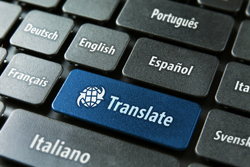Multilingualism for multi-competent Europeans
The 'Languages in a network of European excellence' (LINEE) project established a scientific network of nine European universities to investigate linguistic diversity in Europe. The thematic areas of focus were language, identity and culture, language policy and planning, multilingualism and education, and language and economy. Each topic was studied at national, regional and European levels. LINEE worked to integrate the research, knowledge and structural capabilities of its partners to overcome fragmentation and provide a world-class, knowledge-based reference framework with a view to gaining greater insight into how multilingualism 'works' throughout Europe. Researchers investigated how and if language, identity and culture depend on each other, and what problems and opportunities are likely to result from these interrelations. In the classrooms studied, LINEE found that teachers don't view multilingualism as an asset and, in most cases, follow the ideology of just 'one language in the classroom' and only 'one language at a time'. This trend is even more pronounced when teaching immigrants; the belief is that using and learning several languages at the same time will confuse learners and hamper acquisition of the host community's language. The same approach is used in foreign language classrooms where teachers mainly opt for exclusive use of the target language. However, such an approach neglects, ignores and even wastes potential multilingual resources that young students may possess. Teachers need to be trained regarding the benefits of multilingualism and given the means to help students take advantage of their own multilingual resources in the classroom. Such an approach will serve to promote further learning and even learning of other languages. This is also important considering that the influence of these same teachers extends beyond the classrooms into home life, and therefore affects home language maintenance. Project partners therefore emphasised the fact that teacher training in this direction could be encouraged in connection with programmes promoting intercultural skills and teacher mobility. Furthermore, LINEE research revealed that only certain types of multilingualism are appreciated and promoted in the educational system. However, given that language policies concentrate on standard languages and that the term multilingualism can be interpreted in several ways by those involved, from policymakers to lay people, misunderstandings and conflicts are inevitable in any discussion of its importance. It is important to redress this and take into account the dynamics of integration, power relations and past conflicts between European countries, to develop policies that recognise the impact of multilingualism on job markets and as a factor in identity formation.







